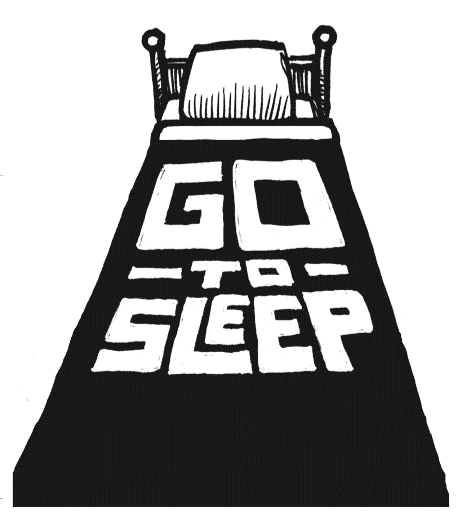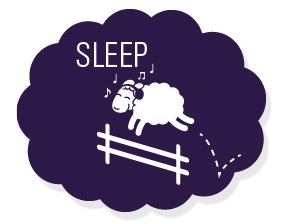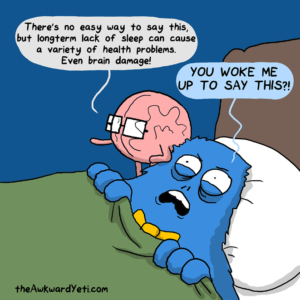Less is More….But Not With Sleep| Janelle Reid

Sleep is an active function which our body requires for optimal performance. The body has a sleep cycle; while we sleep several tasks are operating simultaneously such as processing, restoration and strengthening. I bet you thought you were dead asleep! Poor sleep hygiene can affect our state of well-being resulting in an increased risk for physical and mental illnesses such as heart disease, stroke, cancer, reduced immune system, weight gain, anxiety and depression.
Time to Sleep
Moreover, children, adolescents and adults require varying hours of sleep for optimal body function. According to National Sleep Foundation, it is recommended that newborns to the toddler years (0-2 years old) should have 11-17 hours of sleep. Preschoolers to school aged children (3-11 years old) require 9- 13 hours of sleep. Teenagers to young adults (12-25 years old) require 7-10 hours of sleep and adults (26 and older) require 7-to 9 hours of sleep. Getting the recommended hours of sleep is important! Are you ready for a good night’s sleep?
The Sleep Cycle
There are two main types of sleep, rapid eye movement (REM) sleep and non-rapid-eye-movement (NREM) sleep. This cycle takes place throughout the night beginning with NREM sleep and transitioning into REM sleep. NREM and REM sleep alternate throughout a night’s rest.
During REM sleep the body becomes energized and dreaming takes place. Rapid Eye Movement sleep occurs approximately 90 minutes after falling asleep. Have you ever felt like you are falling or experienced sudden twitches while you are asleep? If you said yes, you are experiencing NREM sleep. This stage of sleep has three cycles and the human body moves from wakefulness sleep (stage one) to less responsive sleep (stage three).
Sleep and Mental Health for Children and Adults
On the other hand, a correlation between lack of sleep and mental health has been identified through several research studies. In fact, some studies concluded sleep deprivation in children and adolescents later resulted in some mental health disorders in adults; one example is depression. On the contrary, patients diagnosed with some mental health disorders such as anxiety disorder, post traumatic stress disorder (PTSD), obsessive compulsive disorder (OCD) and phobias may experience sleep deprivation.
In addition, substance use including prescribed drugs, legal and illegal substances can disrupt the sleep cycle which may result in sleep disturbance. It is best to avoid substances and get a good night’s rest.
Sleep Hygiene
Sleep hygiene relates to the routines and behaviours one can develop throughout the course of the day and before bedtime. This might include a regular sleep schedule, avoiding naps, getting out of bed within 5-10 minutes of being awake, curb your habit of reading or watching television in the bed, reduce caffeine intake, avoid substance use, ensure your bedroom is quiet and comfortable, and have some quiet time before heading to bed. Did you know exposure to natural sunlight helps to regulate your normal sleep-wake pattern? Get out and get some sunlight!
Let’s Count Sheep
Are you ready to sleep? Remember lack of sleep can trigger emotional distress and may result in mental health disorders. Therefore, ensure you develop good sleep hygiene, avoid substances, and get the required hours of sleep for optimal functioning.
Written by, Janelle Reid, Mental Health Counsellor & EMDR Counsellor
Related Posts
Maintaining a Healthy Balance During COVID-19
Due to the outbreak of COVID-19 parents, guardians and children are now...
Being Your Child’s Greatest Influence l Kellie-Anne Brown-Campbell
Parental Influence We wanted to be "big" so much when we were growing up....
Back To School: 4 Tips to Get You Ready | Dr. Shauna Miller
It’s that time of year when we consult school lists and rush around trying...
Schoolers’ COVID-19 Checklist
Here is a list of precautions geared towards protecting children going back...



